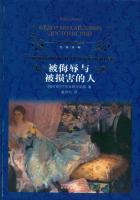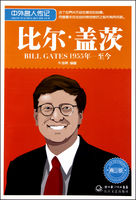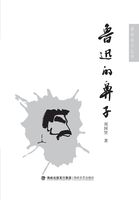It is not difficult to explain this distinction.Hercules was a hero of practical virtue.By his noble serviceableness he was worthy to be a God.On the other hand, his merit was action and not the Contemplation which would place him unreservedly in the higher realm.Therefore while he has place above, something of him remains below.
13.And the principle that reasons out these matters? Is it We or the Soul?
We, but by the Soul.
But how "by the Soul"? Does this mean that the Soul reasons by possession [by contact with the matters of enquiry]?
No; by the fact of being Soul.Its Act subsists without movement; or any movement that can be ascribed to it must be utterly distinct from all corporal movement and be simply the Soul's own life.
And Intellection in us is twofold: since the Soul is intellective, and Intellection is the highest phase of life, we have Intellection both by the characteristic Act of our Soul and by the Act of the Intellectual-Principle upon us- for this Intellectual-Principle is part of us no less than the Soul, and towards it we are ever rising.
SECOND TRACTATE.
ON VIRTUE.
1.Since Evil is here, "haunting this world by necessary law," and it is the Soul's design to escape from Evil, we must escape hence.
But what is this escape?
"In attaining Likeness to God," we read.And this is explained as "becoming just and holy, living by wisdom," the entire nature grounded in Virtue.
But does not Likeness by way of Virtue imply Likeness to some being that has Virtue? To what Divine Being, then, would our Likeness be? To the Being- must we not think?- in Which, above all, such excellence seems to inhere, that is to the Soul of the Kosmos and to the Principle ruling within it, the Principle endowed with a wisdom most wonderful.What could be more fitting than that we, living in this world, should become Like to its ruler?
But, at the beginning, we are met by the doubt whether even in this Divine-Being all the virtues find place- Moral-Balance [Sophrosyne], for example; or Fortitude where there can be no danger since nothing is alien; where there can be nothing alluring whose lack could induce the desire of possession.
If, indeed, that aspiration towards the Intelligible which is in our nature exists also in this Ruling-Power, then need not look elsewhere for the source of order and of the virtues in ourselves.
But does this Power possess the Virtues?
We cannot expect to find There what are called the Civic Virtues, the Prudence which belongs to the reasoning faculty; the Fortitude which conducts the emotional and passionate nature; the Sophrosyne which consists in a certain pact, in a concord between the passionate faculty and the reason; or Rectitude which is the due application of all the other virtues as each in turn should command or obey.
Is Likeness, then, attained, perhaps, not by these virtues of the social order but by those greater qualities known by the same general name? And if so do the Civic Virtues give us no help at all?
It is against reason, utterly to deny Likeness by these while admitting it by the greater: tradition at least recognizes certain men of the civic excellence as divine, and we must believe that these too had in some sort attained Likeness: on both levels there is virtue for us, though not the same virtue.
Now, if it be admitted that Likeness is possible, though by a varying use of different virtues and though the civic virtues do not suffice, there is no reason why we should not, by virtues peculiar to our state, attain Likeness to a model in which virtue has no place.
But is that conceivable?
When warmth comes in to make anything warm, must there needs be something to warm the source of the warmth?
If a fire is to warm something else, must there be a fire to warm that fire?
Against the first illustration it may be retorted that the source of the warmth does already contain warmth, not by an infusion but as an essential phase of its nature, so that, if the analogy is to hold, the argument would make Virtue something communicated to the Soul but an essential constituent of the Principle from which the Soul attaining Likeness absorbs it.
Against the illustration drawn from the fire, it may be urged that the analogy would make that Principle identical with virtue, whereas we hold it to be something higher.
The objection would be valid if what the soul takes in were one and the same with the source, but in fact virtue is one thing, the source of virtue quite another.The material house is not identical with the house conceived in the intellect, and yet stands in its likeness: the material house has distribution and order while the pure idea is not constituted by any such elements; distribution, order, symmetry are not parts of an idea.
So with us: it is from the Supreme that we derive order and distribution and harmony, which are virtues in this sphere: the Existences There, having no need of harmony, order or distribution, have nothing to do with virtue; and, none the less, it is by our possession of virtue that we become like to Them.
Thus much to show that the principle that we attain Likeness by virtue in no way involves the existence of virtue in the Supreme.
But we have not merely to make a formal demonstration: we must persuade as well as demonstrate.
2.First, then, let us examine those good qualities by which we hold Likeness comes, and seek to establish what is this thing which, as we possess it, in transcription, is virtue but as the Supreme possesses it, is in the nature of an exemplar or archetype and is not virtue.
We must first distinguish two modes of Likeness.
There is the likeness demanding an identical nature in the objects which, further, must draw their likeness from a common principle:
and there is the case in which B resembles A, but A is a Primal, not concerned about B and not said to resemble B.In this second case, likeness is understood in a distinct sense: we no longer look for identity of nature, but, on the contrary, for divergence since the likeness has come about by the mode of difference.















